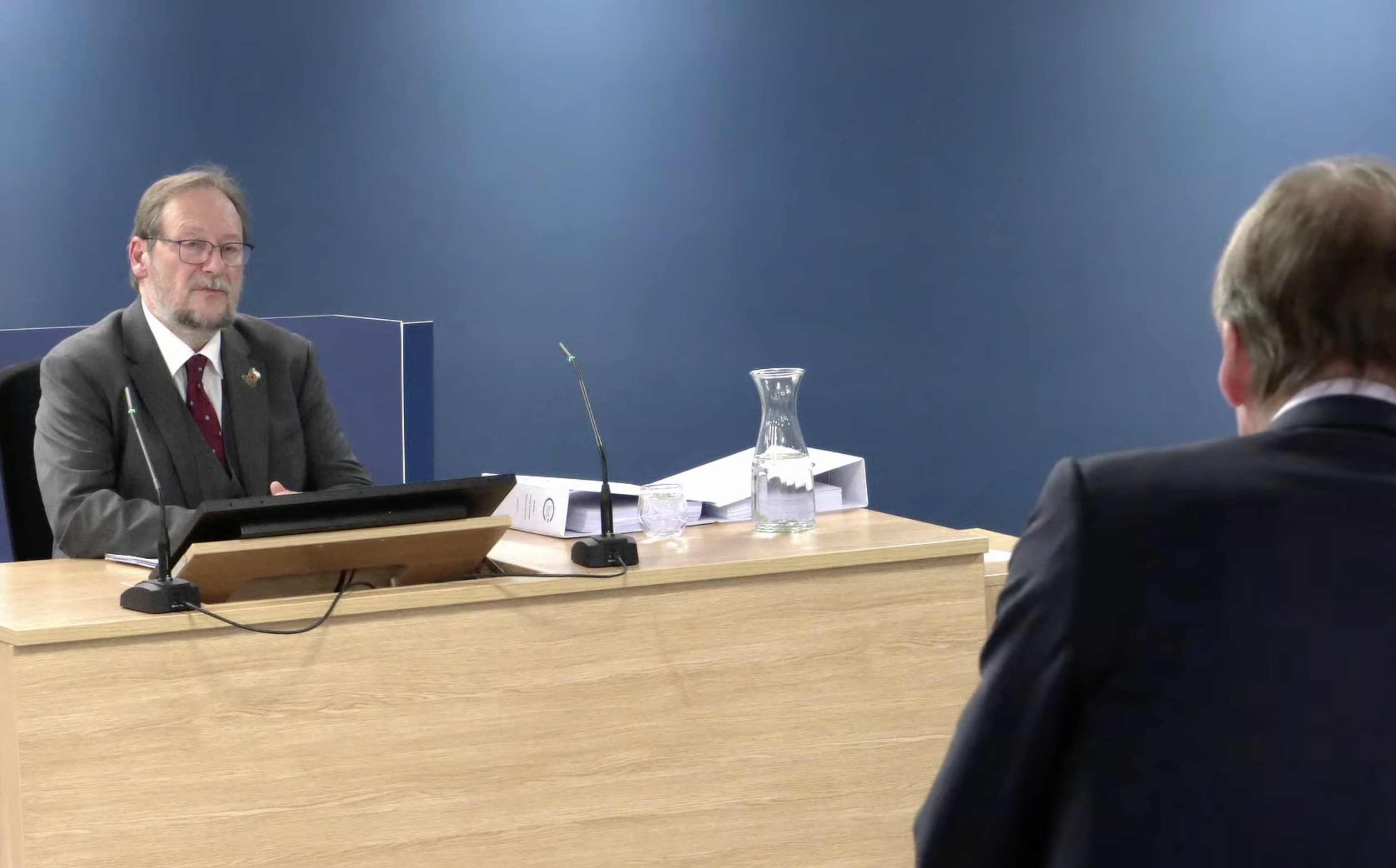Inadequate capacity and a lack of preparation left the NHS unable to cope with the pandemic, the BMA has told the independent public inquiry into COVID-19.
A perfect storm of failings including a failure to appropriately resource and staff the NHS, the dismantling of public health services and the failure to implement pre-pandemic emergency response planning, meant that doctors were overwhelmed and put at risk when COVID-19 arrived in the UK, the association warned.
Giving evidence to module one of the COVID-19 inquiry on 17 July, which is focussed on resilience and preparedness, BMA council chair Philip Banfield said that despite the association having highlighted for years that the health service was ill-equipped or prepared to respond to a pandemic, warnings had been ignored.
Responding to questioning from inquiry counsel Hugo Keith KC and representative of the COVID-19 bereaved families for justice group Allison Munroe KC, Professor Banfield said that the day-to-day pressure of keeping the NHS going had left staff without any capacity for effectively responding to the greatest public health crisis in a century.
 Prof Banfield gives evidence to the COVID inquiry
Prof Banfield gives evidence to the COVID inquiry
He said: ‘The BMA, for a number of years, has been highlighting the issue of capacity within the health service to all four governments. The number of beds has been falling, the number of staff has been falling, and we had been raising concerns prior to the pandemic, that we were not coping.
‘We had raised concerns that social care did not have the capacity that it needed to help the health service create capacity, and therefore that there would be no surge capacity if a pandemic happened.
‘[When COVID hit] there was a sudden realisation within the medical community of what was coming our way, and it was all hands to the pump trying to plan where our intensive care beds would be because we had half the number of beds of the European average, a quarter of the intensive care beds that Germany had.
‘I’ve never seen doctors so worried about how they were going to cope with the influx of seriously sick patients, to the extent that we had intensive care consultants doing physics calculations of oxygen flow through pipes to see whether we could get more oxygen around the hospitals.
‘We knew that this [COVID-19] was unprepared for [and] we were suddenly in a position where not only patients were going to die, but our colleagues and ourselves were in a position where we might die because we felt so unprepared.’
Vulnerable population
Expanding upon the details outlined in written statements previously submitted to the inquiry, Prof Banfield said that a range of factors, including the policies enacted by successive governments, had all contributed to hampering the NHS’s response to the crisis.
These included the decision of the 2012 Health and Social Care Act to remove local public health services from the NHS and transfer them to Public Health England, a move that had led to a disconnect between teams on the ground and central government blunting responses such as testing, track and trace and quarantining efforts.
A running down of the national stockpile of PPE, the failure to properly enforce health and safety law, and the hollowing-out of occupational medicine services saw initial shortages of masks and other protective equipment as well as inadequate fit-testing of health staff.
Furthermore, Prof Banfield said that economic policies around austerity had contributed to health inequalities in the UK population, ultimately leaving the country as a whole more vulnerable and in poorer health when the pandemic arrived.
He added that tackling such inequalities was critical to the UK preparing and building resilience ahead of a future pandemic, which he said was ‘almost inevitable’.
Prof Banfield said: ‘People went into this pandemic very vulnerable because of their health inequalities that had been getting worse over the previous 10 years.
‘Reducing health inequalities and health in all policies is one of our highlights that we wish to see. The reality is that if you are in an environment where a portion of your population is sicker than another one, and it’s due to social determinants of your health, then unless you tackle those, a specific area and subset of your population will be more vulnerable to a pandemic or another flu pandemic, which will come. It is almost inevitable, and we are duty-bound to be prepared for that.’
Find out more about the COVID inquiry and read more about the BMA’s submissions and own review into the pandemic.

